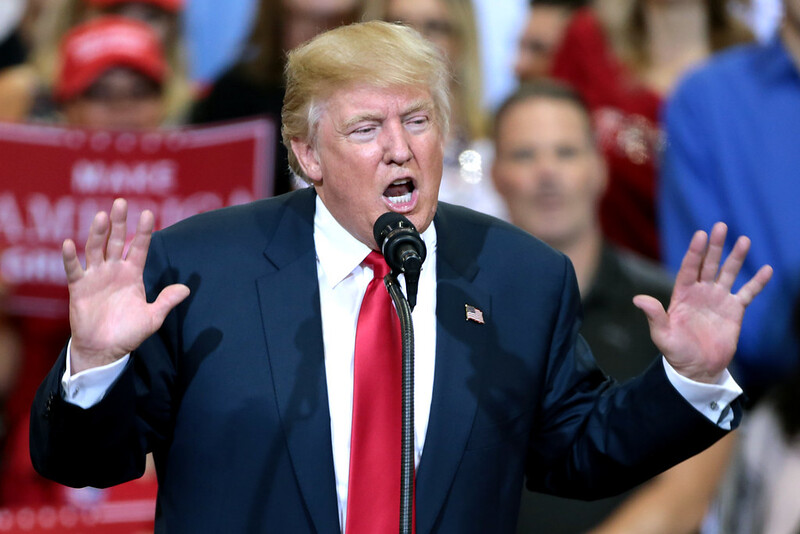
FILE: Former US President Donald Trump at the Phoenix Convention Center in Phoenix, Arizona. (Photo: Gage Skidmore/Flickr, CC BY-SA 2.0)
Donald Trump’s hush money trial has concluded with a guilty verdict on all 34 counts.
But that isn’t likely to be the end of the matter. The former president has had a symbiotic relationship with a legal system he frequently denounces but routinely uses to his advantage. That almost guarantees the case will continue to be part of his tale of grievance, persecution and a rigged system arrayed against him – and, by extension, against his supporters.
Because Trump is facing three other criminal indictments, he and his supporters will undoubtedly persist in charging President Joe Biden with weaponizing the justice system against him – while Trump uses it to escape a day of reckoning.
In a deeply polarized country, Trump’s narrative works. It stokes anger and deepens commitment among fiercely loyal supporters. It also generates cash to pay his legal bills and fuel his campaign.
The evidence shows his claims are false. Anyone who paid even the slightest attention to the trial saw a complex yet quite routine, sometimes mind-numbingly boring process at work. That process has evolved over centuries and rests on the belief that “it is better to let the crime of a guilty person go unpunished than to condemn the innocent,” as the Supreme Court put it over a century ago.
For six weeks, prosecution and defense attorneys presented a mountain of documents, texts and recordings. They examined and cross-examined more than 20 witnesses. Judge Juan Merchan blocked prejudicial testimony. At one point, he did defense attorneys’ work for them, objecting to a salacious question prosecutors asked a key witness.
A process designed to ensure fairness was covered nonstop by the media. And as commentators frequently reminded us, Trump would be convicted only if 12 jurors unanimously concluded he was guilty beyond reasonable doubt.
Trump’s own actions show faith in the system he denounces. He routinely employs rules designed to guarantee due process to his own advantage.
Trump’s federal election interference trial was scheduled to begin March 4, 2024. Claiming he is immune for acts done as president, his attorneys have used the appeal process to delay the case, making a trial before the election unlikely.
It’s a victory that has been replicated in the federal case against the former president for mishandling classified documents and the Georgia election interference prosecution. Trump’s attorneys have delayed both for months, likely ensuring that voters won’t know the outcome when they go to the polls to elect a president in November.
By focusing on the facts, the public can avoid being distracted by baseless allegations that undermine institutions designed to ensure – not weaponize – justice.![]()
Donald Nieman, Professor of History and Provost Emeritus, Binghamton University, State University of New York
This article is republished from The Conversation under a Creative Commons license. Read the original article.





















